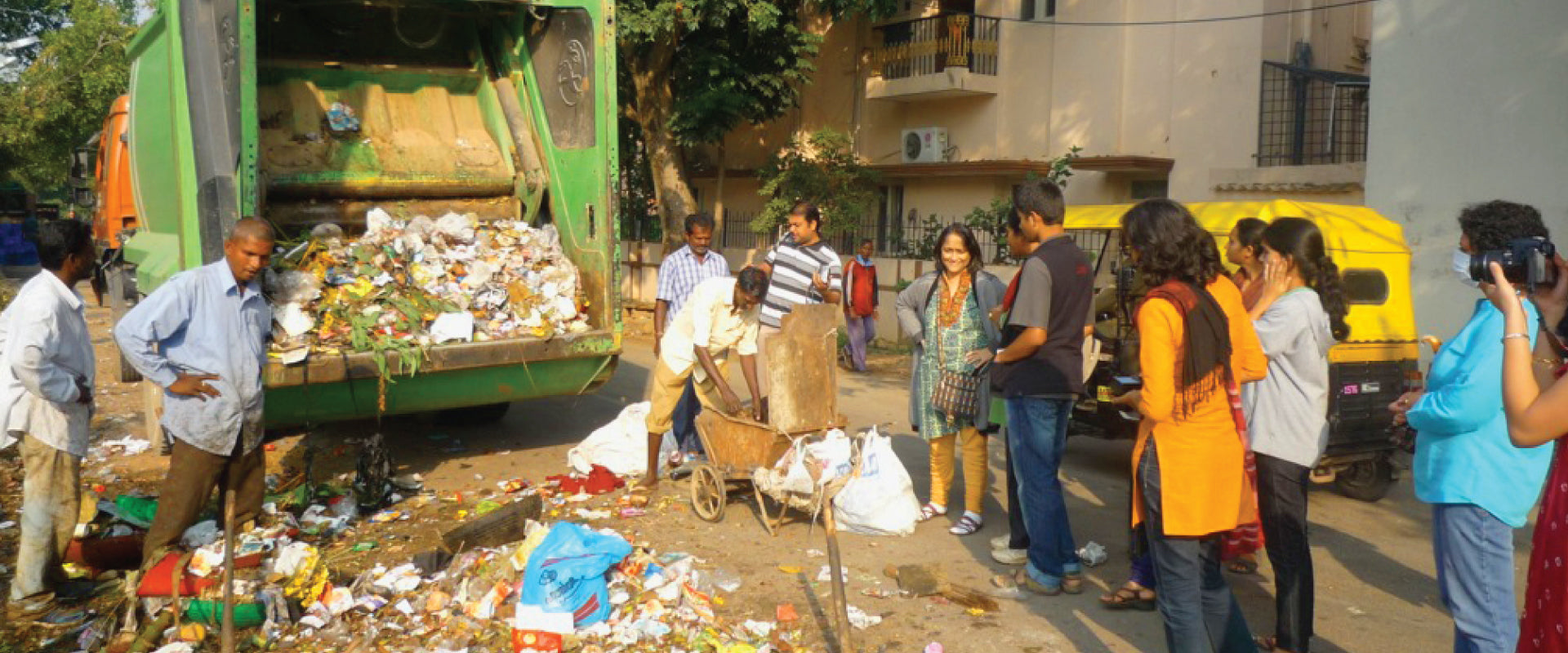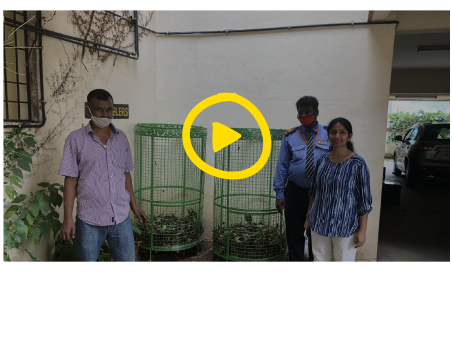Cleanups, Composting and more in the Himalayas | Pradeep Sangwan on The Daily Dump Blog

Pradeep Sangwan started the Healing Himalayas project in 2016, organising waste clean ups at treks in Himalayan region. Eventually, they realised that waste clean ups are not enough, the waste must be segregated and recycled properly. For this reason, they have now set up 3 MRF centres in the state, and plan to expand more.
This Environment Day, we reached out to hear from Pradeep, for his take on littering, recycling, handling organic waste and moving towards sustainable living and a circular economy.
How does the circular economy, e.g. the cleanups & the MRFs, help the environment specifically in the Himalayas?
The global population has appreciated drastically and exponentially in the last century. This factor has negatively impacted the resources that are available across the globe. The condition is even worse in the remote regions of the Himalayas which are becoming popular tourist attractions thereby adding to the local ecology's waste collection & management issues.
By organising these cleanups (where we trek & collect garbage on our way down), and building the MRFs (Material Recovery Facilities), my aim has been to provide support & mechanism to the locals belonging to these fragile ecologies across the Himalayan regions.

The condition is even worse in the remote Himalayas which are becoming popular tourist attractions, This is adding to the local ecology's waste collection & management issues. My aim has been to provide support & mechanism to the locals in these fragile ecologies.
This helps to store our collected garbage and make it a part of a circular economy (where it gets re-used in a recycled form) rather than being dumped in rivers and landfills or being burnt in the open air.
This way we are able to reduce the problem of unwanted & untreated waste and save up on resources needed for the creation of newer materials.
How does your approach differ for organic and dry wastes?
During our treks, we only carry back solid waste which can be recycled like pet bottles, plastic and MLPs. These are segregated at our facilities or sent to municipal corporations where they might be recycled.

For organic waste, which we generally come across at our MRFs, we use 'composting'. For those who aren't well-versed with composting, Composting is the process of decomposition of organic material where the organic material is acted on by soil organisms resulting in the recycling of nitrogen, phosphorus, potassium, and other soil nutrients into humus-rich components. The process generates heat, drives off moisture, and reduces bulky organic waste into a beneficial soil-like material containing nutrients, humus and microorganisms which can further be used in farms, or home gardens.
It is especially useful for us in the remote regions as it is utilised in the form of manure for farming activities. However, brands like Daily Dump are making it possible for people living in nuclear family setups, or flats in the cities to incorporate composting in their lives.

How can we create a circular economy in the cities, especially with our food waste?
Composting is the greatest technique to dispose of food waste. At the city level, the decentralisation of waste management is critical. Each residential society or group of neighbours must take responsibility for their own trash management by first sorting and then submitting the dry waste to the municipal corporation. Wet waste, on the other hand, can be composted at the community level and then used as manure in communal gardens or parks. This way we will be able to build something useful from what is generally considered 'waste'.
I personally find Daily Dump's composters to be quite useful for this purpose. While currently, we are employing their Aaga compost drums at our MRFs, their smaller composting kits are very viable and useful for an individual urban dweller too. And when it comes to a large group of families, the Aaga compost drums or other variants can prove to be very useful.
Composting is the greatest technique to dispose of food waste. I personally find Daily Dump's composters to be quite useful for this purpose.
What are your suggestions to make sustainable living & circular economy the default?
Living sustainably and incorporating a circular economy into your daily life is quite straightforward. And it doesn't take much—just taking modest steps like carrying reusable bottles, cutlery, straws, and cups instead of plastic/disposable ones is enough. Composting is a viable choice for organic waste management, as is recycling and reusing as much as feasible.
Eating seasonally and locally is also good for both- your health and the environment. Another option is to send your old electronic devices for refurbishment or recycling rather than tossing them in the bin.
Furthermore, if these concepts are introduced to children at a young age, they will become a natural part of their lifestyle. If sustainable living and concepts like composting are integrated into our educational system, it will result in more environmentally conscious people who will help to create a better, healthier world.
—
To learn how to make your own compost at home, email us hello@dailydump.org or WhatsApp 9916426661. We are here to help!
Explore reusable zero-waste alternatives here, and start taking small steps to sustainable living.
Introduce your kids to sustainable living with our range of books here.
Happy Environment Day, and Happy Composting!




